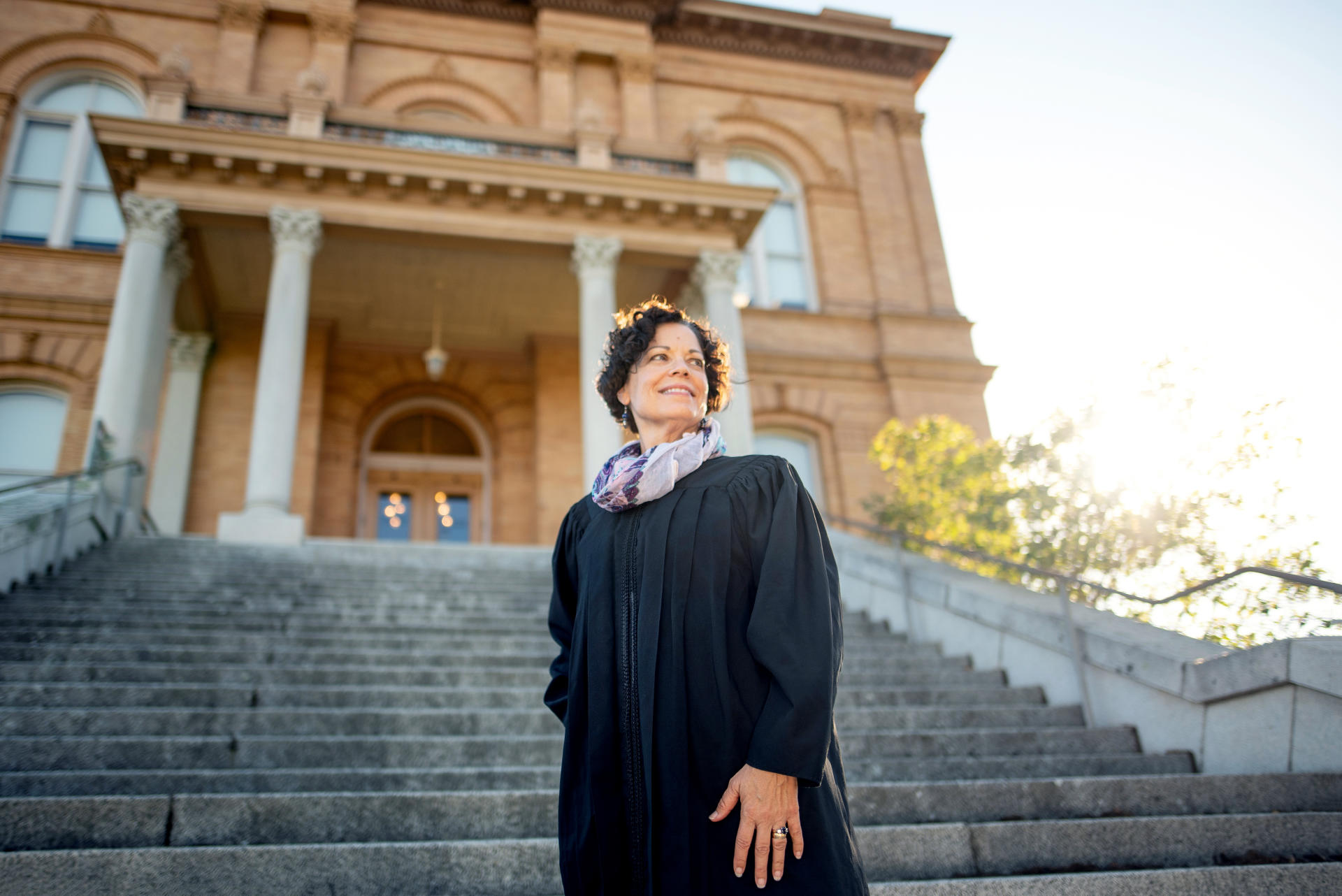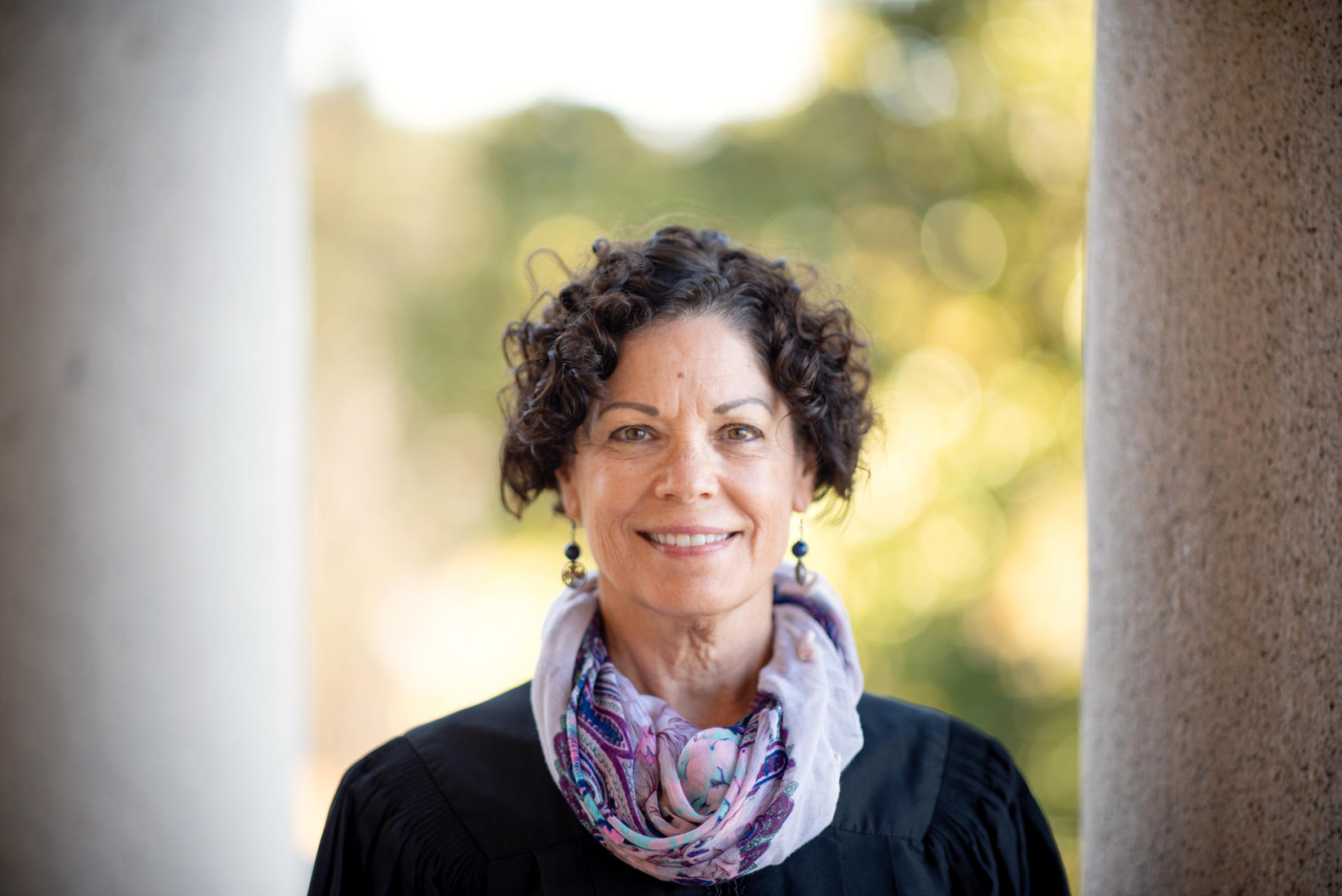Superior Court Judge Seeks Solutions Instead of Sentences

Placer County Superior Court Judge Colleen Nichols is an alum of the Community Legal Information Center (CLIC) who has led a successful career in the law, photographed on Tuesday, October 13, 2020 in Auburn, Calif. (Jessica Bartlett/University Photographer/CSU, Chico)
This is one of four profiles marking the 50th anniversary of the Community Legal Information Clinic. As each alumni lawyer can attest, the program fosters a love of law that often leads to thriving careers. All of the profiles can be accessed in our 50-year tribute.
Through regular involvement in local fundraisers and organizations, Colleen Nichols’ parents made engaging with the community a priority for her and her four older siblings.
“After volunteering, my parents would say, ‘It’s not about picking and choosing who you do things for—you just do things for the greater good and not for yourself,’” she said. “I was raised with a very strong sense that the world does not revolve around you.”
Now a judge for the Superior Court of Placer County in nearby Auburn, Nichols (Political Science, ’81) connects a direct thread from the altruistic experiences of her childhood to her time at CLIC to her 26-year courtroom career.
Nichols said the intellectual challenge within the political science discipline intrigued her early in college and led her to intern with CLIC, where she worked with its Welfare Rights Organization for two years. Nichols now marvels at the responsibilities she assumed as a student intern.
“At 20 years old, I was representing people at Social Security disability hearings, at welfare hearings, administrative hearings,” she said. “We were writing briefs, we were going to the hearings with them, we were speaking for them. The [supervising] lawyers certainly helped train us on how to organize a brief and attach the exhibits and present our arguments—but it was a pretty amazing experience.”
After a year working as a paralegal after college, she enrolled in the University of California, Davis School of Law, where she earned her Doctor of Jurisprudence in 1985. She spent 11 years hearing cases while serving as a court commissioner, before she was elected judge in 2004.
Whether overseeing criminal cases ranging from DUIs to assault to murder, or handling drug court and dependency court cases, Nichols finds incredible rewards in administering the law.

Her involvement in the Placer County Proposition 36 program— which is now integrated into drug court—saw both successes and setbacks, but by providing an alternative to traditional criminal court for individuals struggling with substance use, she embraced a team approach that offered supervision and treatment in lieu of incarceration.
“Sometimes they’re epic failures at it, sadly, and sometimes there are criminal consequences,” she said. “But sometimes people do really well.”
For the last six years, Nichols has been the supervising judge for juvenile cases, hearing between 25 and 75 child welfare and delinquency cases a day. Working in juvenile court allows Nichols contact early in children’s lives and a touchpoint to help steer them in a safer direction—with the goal of creating a healthier community.
“It’s an opportunity to help people change their lives, their children’s lives, and to change their future,” she said.
Whether it’s a criminal case, drug court, or a child welfare dispute, Nichols approaches her work with an honest frankness and a tough love that holds people accountable. It’s a style those who come through her courtroom may not be used to—yet it is one that is built on the bedrock of support.
“Many of our people who come through drug court or parents in a child welfare case have not had a lot of successes in their lives,” Nichols explained. “Sometimes they’ve never had anybody tell them, ‘I’m really proud of you, you did a great job with how you handled the situation’ or ask, ‘Do you think you could have done that better? What choice would you make next time?’”
In helping people make better choices and change their futures, she hopes to be a part of systemic change, one case at a time.


